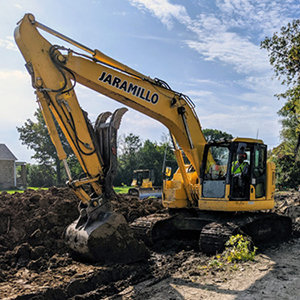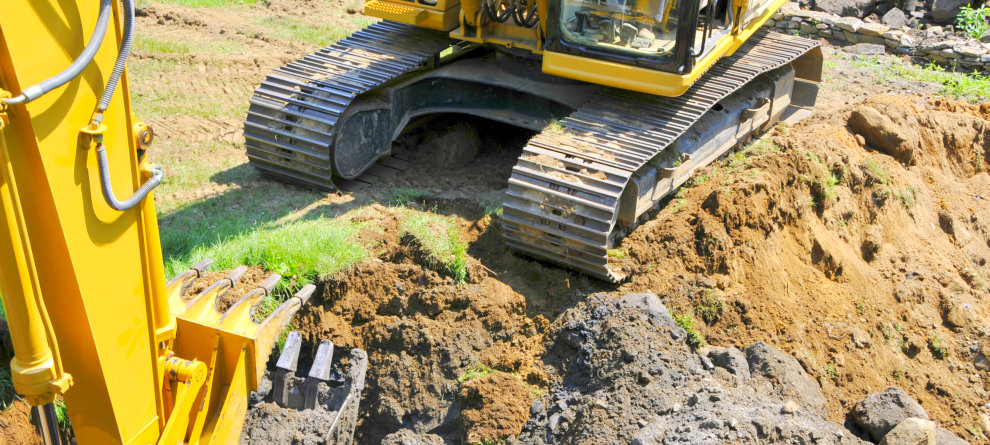Comprehensive Excavation Approaches: Grasping the Principles for Success
The careful preparation, precise execution, and precise interest to information called for in excavation projects require an extensive strategy that includes various basic elements. The true proficiency exists not simply in understanding these fundamentals but in flawlessly integrating them to browse the complexities of excavation tasks with skill.
Understanding Excavation Project Planning

The first stage of any excavation project is the planning stage, where critical choices are made that can considerably impact the end result of the project. Comprehending the job budget plan, extent, and timeline restrictions is crucial for producing a comprehensive excavation plan that guarantees the task's success.
One key facet of excavation job planning is the growth of a thorough timeline that outlines the sequence of due dates, turning points, and tasks. This timeline functions as a roadmap for the job group, enabling them to track development and make necessary changes to guarantee the project remains on timetable. In addition, a well-defined budget plan that makes up all expenses, consisting of devices leasing, labor costs, and materials, is important for staying clear of expense overruns and delays. By thoroughly considering all these factors throughout the drawing board, excavation jobs can be performed efficiently and properly, resulting in successful results.
Dirt Analysis and Site Evaluation
Conducting extensive soil evaluation and site examination is a critical action in the prep work stage of any kind of excavation project. Soil evaluation includes determining the composition, structure, and buildings of the dirt at the excavation site. This information is important for understanding the soil's bearing ability, moisture web content, and potential for disintegration, which are essential consider identifying the excavation approaches and equipment required for the job.
Website analysis surpasses soil evaluation and incorporates a wider evaluation of the total website conditions. This analysis consists of identifying any type of prospective threats, such as underground utilities, ecological issues, or unstable surface, that could affect the excavation process. By thoroughly assessing the site, project managers can develop reliable excavation strategies that focus on safety, efficiency, and ecological security.
Utilizing sophisticated innovations like ground-penetrating radar, soil sampling, and drone surveys can improve the accuracy and effectiveness of soil evaluation and site evaluation. Investing time and sources in these preliminary steps can ultimately conserve time and protect against costly delays or complications during the excavation procedure.
Equipment Selection and Application
Effective excavation projects depend greatly on critical devices option and application to make sure ideal efficiency and efficiency. Choosing the appropriate tools for the job is important in maximizing effectiveness and decreasing downtime. Variables such as the kind of dirt, deepness of excavation, and project extent play a significant duty in figuring out one of the most suitable equipment for the task handy.

In enhancement to choosing the appropriate equipment, correct usage is vital to project success. Operators must be trained to take care of the equipment securely and efficiently - lancaster excavation. Normal upkeep checks and timely repair services assist avoid failures and make sure consistent performance throughout the project
Precaution and Rules Compliance
In the world of excavation projects, focusing on security steps and compliance with regulations is extremely important to guaranteeing a secure and legitimately audio operational setting. Precaution incorporate a series of methods, consisting of conducting extensive site assessments, executing correct signage and obstacles, and supplying adequate safety training for all workers associated with the excavation process. Adherence to policies, such as OSHA demands in the United States, ensures that the excavation task meets the necessary standards to shield employees, spectators, and the surrounding environment.

Monitoring Development and Adjusting Strategies
Just how can forecast supervisors effectively track the advancement of excavation tasks and adapt their approaches accordingly to maximize results? Tracking development is crucial for making sure that excavation jobs stay on track and meet target dates. Project managers can make use of his comment is here various tools and methods to track progression, such as day-to-day progress reports, normal site assessments, and progressed tracking innovations like drones and general practitioners tracking systems. By continually keeping an eye on the task's development, supervisors can determine any possible delays or concerns at an early stage and take aggressive actions to address them.

Conclusion
In conclusion, understanding the fundamentals of thorough excavation approaches is essential for the success of any kind of project. By understanding job preparation, evaluating soil and site conditions, picking proper devices, complying with safety policies, and keeping an eye on progress, project supervisors can ensure a effective and smooth excavation procedure. Applying these methods will result in successful end results and decrease possible threats or obstacles look at these guys during the excavation task.
The initial stage of any type of excavation task is the preparation phase, where crucial decisions are made that can dramatically impact the end result of the job. Recognizing the job range, budget plan, and timeline restrictions is essential for producing an extensive excavation strategy that makes sure the job's success.
Just how can predict supervisors properly track the innovation of excavation jobs and adjust their approaches as necessary to enhance outcomes? By carefully monitoring progression and being eager to adjust techniques, project supervisors can boost the general success of excavation projects.
By understanding job planning, examining soil and website conditions, selecting suitable tools, complying with safety laws, and checking development, project supervisors can ensure a efficient and smooth excavation process.